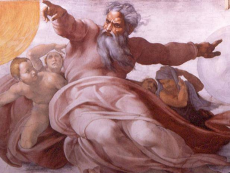
Email: reecejordan98@hotmail.co.uk
Total Article : 168
About Me:18-year-old sixth form student, studying English Literature, History and Government and Politics. My articles will broadly cover topics from the current affairs of politics to reviews of books and albums, as well as adding my own creative pieces, whether it be short fiction or general opinion.

However, as Empson states, ‘before we began to worry about Milton’s God being wicked, we had a long period of suspecting that his Satan was in some romantic way good.’ The assertion is that we are predisposed to inclining towards Satan’s side before we even question God. This is not only because Satan comes before God in the narrative – and so sets the tone primarily – but also because, as Stephen Telano states, Satan ‘is a master of rhetorical speech and manipulation.’ In Book 2, Satan tells of his plan to ‘Seduce them [Man] to our party, that their God / May prove their foe’ (Book 2, ll. 368-369). However, this plan does not just extend into just seducing Adam and Eve, but the reader. As Hopkins states, Paradise Lost is ‘an experiential process which conveys to us both the goodness of the divine dispensation which it imagines, and the perils of rejecting that dispensation.’ As we read the poem and persistently side with Satan’s lure which is amplified by God’s seeming tyranny, we, like Adam and Eve, are experiencing a kind of fall – one away from God. In this way we allow Satan to assume his ‘godlike imitated state’ (Book 2, l. 511) insofar as we allow him to usurp God and gain our trust.
In fact, what on the surface appears as tyranny in God’s tone may be misconstrued. In opposition to Satan, God’s speech is, as Stanley Fish states, ‘of logical method being applied to a universe of things.’ Thus, Man being called ‘ingrate’ by God is not a term of resent but of categorisation; ‘The names God imposes reflect the accuracy of his perception rather than his attitude towards the object aimed.’ Milton, by having Satan allure us, and God embody a cold, confusing figure does little to ‘justify the ways of God to man’ (Book 1, l. 26). However, his ‘fit audience’ (Book 7, l. 31) should recognise their sympathies towards Satan’s rhetoric, and realise that whilst God’s language may be distant, it is of supreme authority. As Fish states, ‘The reader who falls before the lures of Satanic rhetoric displays again the weakness of Adam.’ Thus, the poem’s didactic function – and its ‘experiential process’ - is to illustrate just how easily it is for humanity to succumb to temptation.
Paradise Lost, then, is not, as it was first supposed, a poem to lambast God. Whilst it can be easily argued that Milton looks to find a moral supremacy over the biblical God, this seems inconsistent with his own religious beliefs. Rather, the poem forces us to realise that temptation is not always so obvious; and it is a testament to the power of language that it can sway such entrenched beliefs.

0 Comment:
Be the first one to comment on this article.